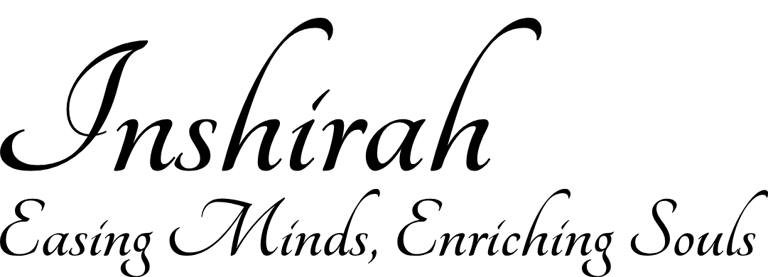Unveiling the Transformative Power of Counseling and Therapy: A Path to Personal Renewal
Explore the transformative power of therapy in our latest blog post, where we debunk common myths about counseling and highlight its profound benefits for personal growth and emotional well-being. Learn how therapy provides essential tools for stress management, improving relationships, and fostering self-discovery, encouraging everyone to consider this proactive step towards a healthier, more fulfilled life.
COUNSELLING
Dr Rikza Pervez
7/13/20243 min read


Introduction: Breaking Down the Barriers
"Is therapy really just for people who can't handle their problems on their own?" This common question reflects a widespread myth about mental health services. It suggests that seeking therapy is a last resort rather than a proactive step towards personal well-being. Today, we’re diving deep to debunk this myth and reveal how therapy and counseling are powerful tools for anyone aiming to enhance their life, regardless of the nature or severity of their challenges.
The Transformative Power of Counseling and Therapy
Counseling and therapy go beyond the traditional setting of a client speaking and a therapist listening. These processes are dynamic, involving active engagement from both parties. They provide a safe space to explore your thoughts and emotions, uncover and address the roots of your challenges, and learn practical strategies for managing stress, resolving emotional conflicts, and improving relationships.
Therapy offers tools that can transform lives:
- Stress Management: Learn techniques to manage stress before it becomes overwhelming.
- Emotional Resolution: Address and heal from past traumas that influence current behaviors.
- Relationship Enhancement: Improve communication skills and deepen relationships with others.
- Self-discovery: Gain deeper self-awareness and understanding which promotes personal growth.
Consider the narrative of a person who has battled chronic anxiety, finding relief through cognitive-behavioral strategies learned in therapy, leading to a significantly improved quality of life and better relationships. Or, think of a couple that, through dedicated relationship counseling, learned to navigate their differences, leading to a renewed commitment to each other. These real-life examples showcase the profound impact and practical benefits of engaging in counseling and therapy.
Addressing Common Barriers
Despite its benefits, many individuals hesitate to seek mental health services due to stigma, concerns about cost, or misconceptions about the nature of counseling and therapy. Here’s how to overcome these barriers:
- Stigma: Understand that mental health care is a strength, not a weakness. Therapy is a proactive step towards wellness.
- Cost: Explore insurance options, sliding scale fees, or community health centers that offer counseling at reduced rates.
- Misconceptions: Recognize that therapy is not only for severe mental health issues but is a useful tool for anyone interested in personal development.
Practical Tips and Getting Started
To start, seek referrals from trusted sources or consult reputable online directories that list qualified therapists. Many therapists offer initial consultations free of charge to determine if their services are a good fit for your needs. You can book your session with us also as the team is specialized in dealing mental health and behavioural issues.
Conclusion: A Call to Wellness
If you've ever felt held back by emotional difficulties or if you're simply seeking to enhance your overall well-being, counseling and therapy can offer the tools and insights to foster significant change. They're not just about fixing problems—they're about enriching your life at every level.
Call to Action
Consider this an invitation to explore how therapy can benefit you personally. If this article resonates with you, why not share it with someone who might also benefit from understanding the transformative power of counseling and therapy? Taking the first step could lead to a profoundly positive change in your life.
FAQs
1. What exactly is counseling and how does it differ from therapy?
- Counseling generally focuses on specific issues and is more likely to be short-term, whereas therapy can address more complex issues over a longer period.
2. Can therapy really help anyone, even if I don’t have serious mental health issues?
- Yes, therapy can be beneficial for anyone looking to improve their emotional well-being, cope with everyday stress, or enhance personal growth.
3. What are some common misconceptions about therapy?
- Many believe therapy is only for severe mental health conditions or that seeking help is a sign of weakness, both of which are not true.
4. How can I find the right therapist or counselor for me?
- Consider factors like specialization, treatment approach, and personal compatibility. You are at the right place with #Inshirah, just book a call with us and our specialized team will help you in your challenges.
5. Is therapy expensive, and are there affordable options?
- Therapy costs can vary, but many therapists offer sliding scale fees as per need and requirement. But don't worry #Inshirah is considerate to the needs of the clients and provides affordable options. So that therapy can be accessible to all.
6. What is discussed in a therapy session?
- Discussions can range from current life challenges, past experiences, thoughts, feelings, and reactions to various personal and professional relationships.
7. How often should I go to therapy?
- Frequency can vary based on individual needs, but many start with weekly sessions and adjust as progress is made.
8. How do I know if therapy is working for me?
- Signs of progress include feeling more capable of managing stress, improved relationships, and greater insight into your own behavior and emotions.
9. Can I stop therapy if I feel it’s not right for me?
- Absolutely, you can stop therapy at any time. It's important to discuss your concerns with your therapist, as sometimes a different approach may be needed.
10. Are there different types of therapy modalities?
- Yes, there are many types of therapy, including Cognitive Behavioral Therapy (CBT), Psychodynamic Therapy, and others, each with different methods and focuses.
#mentalhealthawareness
#therapybenefits
#stressmanagement
#emotionalwellbeing
#relationshipadvice
#personaldevelopment
#selfdiscovery
#overcomingstigma
#counselinghelp
#lifetransformation
